File Info
| Exam | Oracle Datbase 12c SQL |
| Number | 1z0-071 |
| File Name | Oracle.1z0-071.SelfTestEngine.2019-10-14.181q.tqb |
| Size | 16 MB |
| Posted | Oct 14, 2019 |
| Download | Oracle.1z0-071.SelfTestEngine.2019-10-14.181q.tqb |
How to open VCEX & EXAM Files?
Files with VCEX & EXAM extensions can be opened by ProfExam Simulator.
Coupon: MASTEREXAM
With discount: 20%
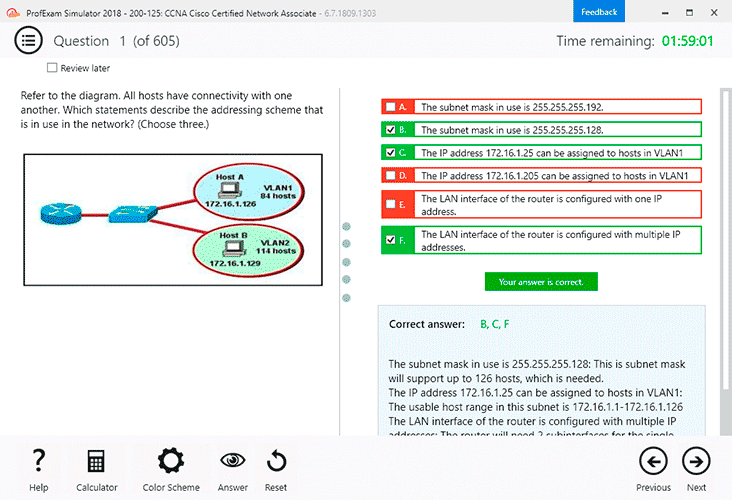
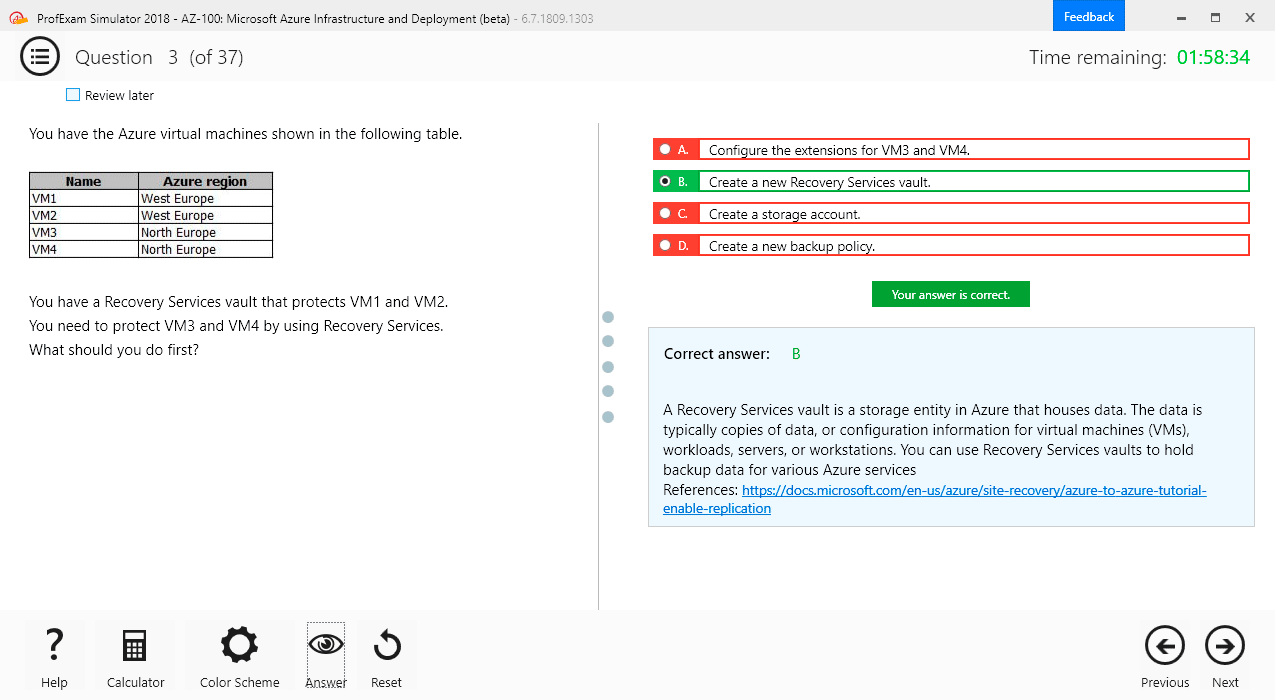
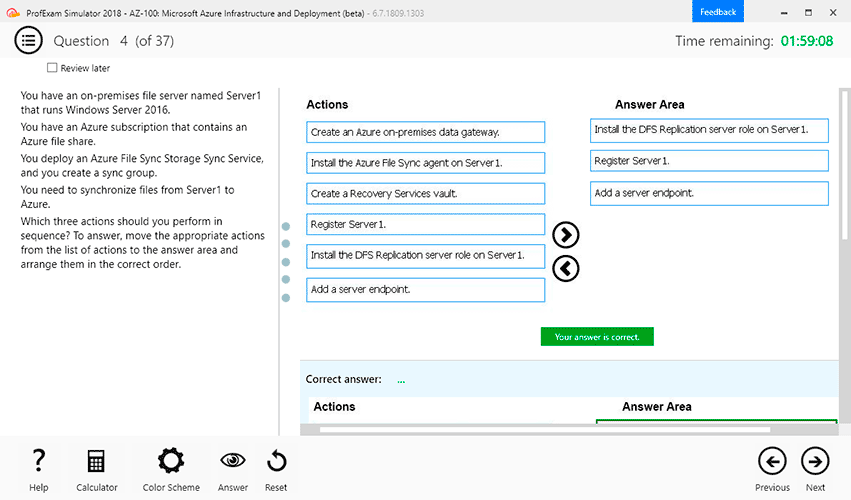
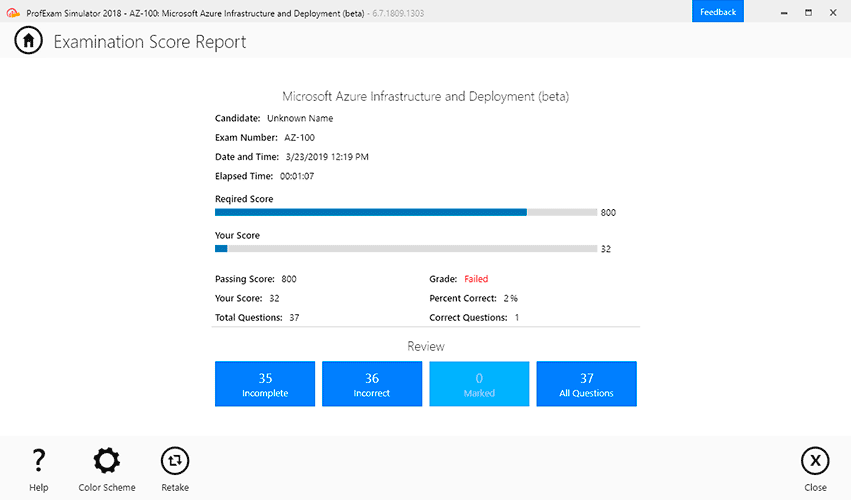
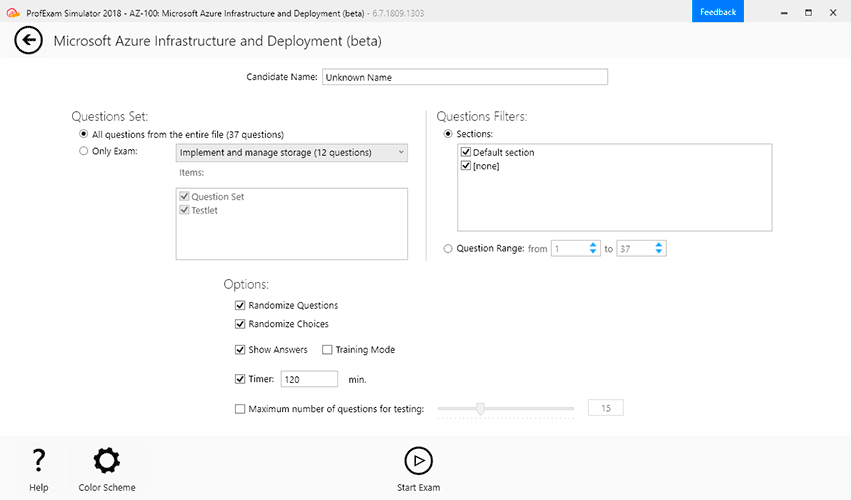
Demo Questions
Question 1
Evaluate the following SQL statement:
SQL> select cust_id, cust_last_name "Last name"
FROM customers
WHERE country_id = 10
UNION
SELECT cust_id CUST_NO, cust_last_name
FROM customers
WHERE country_id = 30
Identify three ORDER BY clauses either one of which can complete the query.
- ORDER BY "Last name"
- ORDER BY 2, cust_id
- ORDER BY CUST_NO
- ORDER BY 2, 1
- ORDER BY "CUST_NO"
Correct answer: ABD
Explanation:
Using the ORDER BY Clause in Set Operations The ORDER BY clause can appear only once at the end of the compound query. Component queries cannot have individual ORDER BY clauses. The ORDER BY clause recognizes only the columns of the first SELECT query. By default, the first column of the first SELECT query is used to sort the output in an ascending order. Using the ORDER BY Clause in Set Operations
- The ORDER BY clause can appear only once at the end of the compound query.
- Component queries cannot have individual ORDER BY clauses.
- The ORDER BY clause recognizes only the columns of the first SELECT query.
- By default, the first column of the first SELECT query is used to sort the output in an ascending order.
Question 2
Which three statements are true regarding the WHERE and HAVING clauses in a SQL statement? (Choose three.)
- WHERE and HAVING clauses cannot be used together in a SQL statement.
- The HAVING clause conditions can have aggregate functions.
- The HAVING clause conditions can use aliases for the columns.
- The WHERE clause is used to exclude rows before the grouping of data.
- The HAVING clause is used to exclude one or more aggregated results after grouping data.
Correct answer: BDE
Question 3
Which statement is true regarding external tables?
- The CREATE TABLE AS SELECT statement can be used to upload data into a normal table in the database from an external table.
- The data and metadata for an external table are stored outside the database.
- The default REJECT LIMIT for external tables is UNLIMITED.
- ORACLE_LOADER and ORACLE_DATAPUMP have exactly the same functionality when used with an external table.
Correct answer: A
Explanation:
References:https://docs.oracle.com/cd/B28359_01/server.111/b28310/tables013.htm References:
https://docs.oracle.com/cd/B28359_01/server.111/b28310/tables013.htm

